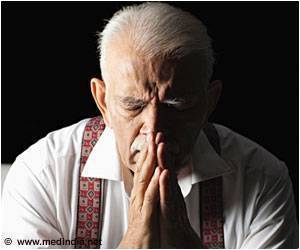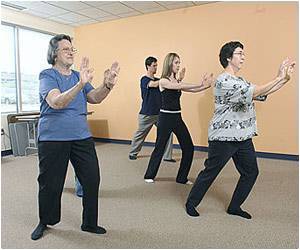Changes during the treatment of blood pressure with medications may cause falls in elderly due to postural hypotension, resulting in serious injury.

- Falls are a common cause of disability and death in the elderly.
- Postural hypotension is a common cause of falls in the elderly.
- Changes in blood pressure medications during treatment for hypertension may increase the risk of falls in the elderly.
Another important cause for falls is postural hypotension; wherein the blood pressure falls while suddenly moving from the lying to an erect posture. Postural hypotension is a common side effect caused by several blood pressure medications. Antihypertensive drugs can also cause other problems like dizziness, balance problems and low sodium levels, which could increase the chance of dizziness especially in the elderly.
A study published in Circulation: Cardiovascular Quality and Outcomes evaluated the risk of falls causing serious injury during initiation or changes in the treatment of hypertension. The data were obtained from Medicare claims put forth by beneficiaries over a five-year period between July 2007 and December 2012.
The researchers identified 90,127 patients who had serious injuries due to falls like brain injury, dislocation of the hip, knee, or jaw, and fractures of the facial bones, pelvis, and hip. These injuries had a potential to severely disable the patient. Some of the injuries were even fatal.
The researchers found that risk of a fall resulting in a serious injury was increased following either of the following situations:
- Starting treatment with a new antihypertensive medication: In the 272 patients who were started on a new antihypertensive drug, the risk of fall increased by 36%.
- Adding a new class of antihypertensive drug to the existing treatment: A new class of antihypertensive drug was added to 1508 patients, who had a 16% increased risk of fall.
- Titrating the dosage of antihypertensive medication for better control of blood pressure: The dosage was titrated in 3113 patients, in whom the risk of fall was increased by 13%.
This study signifies the importance of taking extra precautions against falls and monitoring the patient following medication change or dosage increases of antihypertensive medications, at least in the initial 15 days.
- Shimbo D, Bowling CB, Levitan EB, Deng L, Sim JJ, Huang L, Reynolds K, Muntner P. Short-Term Risk of Serious Fall Injuries in Older Adults Initiating and Intensifying Treatment With Antihypertensive Medication. CIRCOUTCOMES.115.002524















